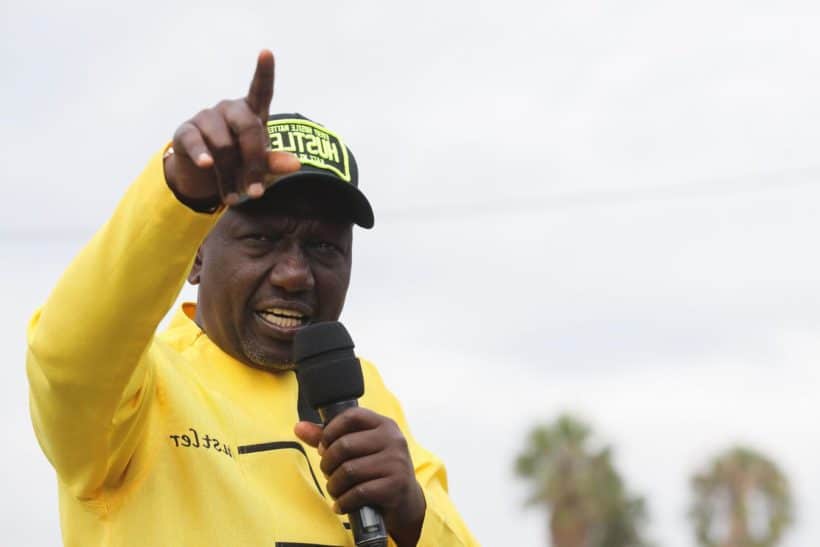
NAIROBI, March 15 (Reuters) – Kenya’s Deputy President William Ruto is due to be nominated on Tuesday by his new party to stand for the presidency in an August election after his public split with President Uhuru Kenyatta who is backing another candidate.
Ruto will compete with veteran opposition leader Raila Odinga, who has secured Kenyatta’s support. Kenyatta, who must stand down after serving the maximum of two five-year terms, says Ruto is not trustworthy and less experienced than Odinga. Read full story
Some Kenyans are concerned about the divisions because elections have sometimes sparked violence – notably in 2007, when Odinga’s supporters said his victory was stolen and a crackdown on political protests degenerated into clashes between ethnic groups.
Ruto, standing with the newly created United Democratic Alliance, has sought to calm those fears.
“William Ruto will accept the election outcome whichever way it goes,” Ruto told an audience in Chatham House recently. “I want all the other candidates to make the same commitment.”
Elections in the East African nation are closely watched; Kenya is the region’s richest and most stable nation and a close Western ally that hosts regional headquarters of international firms like Alphabet Inc GOOGL.O and Visa V.N.
Read more: Kenya’s budget deficit to widen as Treasury lays out extra spending
Ruto, who served as a lawmaker and minister for agriculture before becoming deputy president, has sought to break through Kenya’s traditional patterns of ethnic voting by casting the election as a competition of poor “hustlers” against a wealthy political “dynasty”.
He says he began his career as a roadside chicken seller, a pointed contrast to Kenyatta and Odinga – the sons of the nation’s first president and vice president respectively – and pledges to shift government funding from large infrastructure projects to small enterprises.
Critics point to corruption allegations against Ruto – none of which have ever been proven in court – and a case against him at the International Criminal Court in The Hague for allegedly masterminding violence following the disputed 2007 election.
The case later collapsed; a Kenyan lawyer is currently on trial at the ICC accused of bribing prosecution witnesses against Ruto, which the lawyer denies.
Kenyatta, Odinga, and Ruto come from three of Kenya’s four biggest ethnic groups. Kenyatta’s Kikuyu group, the nation’s most populous, has produced three of four presidents since independence from Britain in 1963.
Kenya’s other president Daniel arap Moi – its longest-serving – came from Ruto’s Kalenjin group. Odinga’s Luo group have never held the top job. Both Odinga and Ruto need to woo Kikuyu voters to win.
(Reporting by Duncan Miriri; Editing by Katharine Houreld and Raissa Kasolowsky)